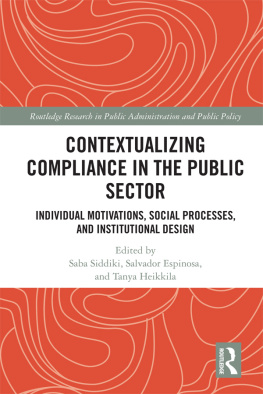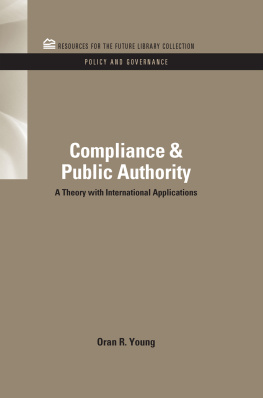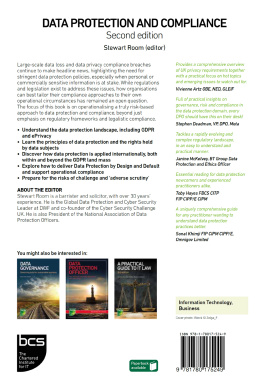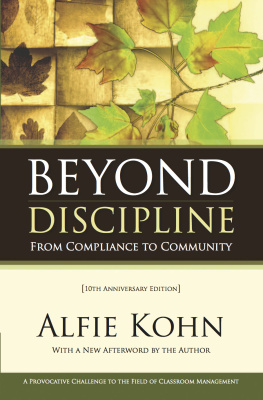Youth Justice in Context
Drawing on the international literature and original empirical research from Northern Ireland and the Republic of Ireland, Youth Justice in Context examines the influence of legislative, organizational, policy and practice issues in shaping what constitutes compliance and how non-compliance is responded to when supervising young offenders in the community. It also addresses the impact of adolescent developmental immaturity and social and personal circumstances in mediating expectations of compliance.
A central concern of the book is to explore the manner in which compliance changes over time through the dynamics that arise in the supervisory relationship between practitioners and young people, and against the backdrop of the social and psychological changes that occur in adolescents lives as they move towards early adulthood. A detailed examination is provided based on the perspectives of probation and youth justice professionals operating across different organizational contexts, and of young people subject to community supervision. To this end, the book offers in-depth analysis on the strategies employed by practitioners in promoting compliance and responding to non-compliance. It also provides unique insights into young peoples perceptions of the supervision process, their motivations to comply, and their perspectives on desistance from offending.
This book offers an alternative perspective to policies and practices that focus primarily on stringent enforcement and control measures in responding to noncompliance. Youth Justice in Context is suited to academics, researchers, students, policy makers, social workers, probation officers, youth justice workers, social care workers and other practitioners working with young people in the criminal justice system.
Mairad Seymour is a senior lecturer at the Dublin Institute of Technology. Her research interests include youth crime and justice, comparative youth justice, offender compliance and community sanctions.
Routledge Frontiers of Criminal Justice
1. Sex Offenders, Punish, Help, Change or Control?
Theory, policy and practice explored
Edited by Jo Brayford, Francis Cowe and John Deering
2. Building Justice in Post-Transition Europe
Processes of criminalisation within Central and Eastern European societies
Edited by Kay Goodall, Margaret Malloch and Bill Munro
3. Technocrime, Policing and Surveillance
Edited by Stphane Leman-Langlois
4. Youth Justice in Context
Community, compliance and young people
Mairad Seymour
First published 2013
by Routledge
2 Park Square, Milton Park, Abingdon, Oxon, OX14 4RN
Simultaneously published in the USA and Canada
by Routledge
711 Third Avenue, New York, NY 10017
Routledge is an imprint of the Taylor & Francis Group, an informa business
2013 Mairad Seymour
The right of Mairad Seymour to be identified as author of this work has been asserted by her in accordance with the Copyright, Designs and Patents Act 1988.
All rights reserved. No part of this book may be reprinted or reproduced or utilised in any form or by any electronic, mechanical, or other means, now known or hereafter invented, including photocopying and recording, or in any information storage or retrieval system, without permission in writing from the publishers.
Trademark notice: Product or corporate names may be trademarks or registered trademarks, and are used only for identification and explanation without intent to infringe.
British Library Cataloguing in Publication Data
A catalogue record for this book is available from the British Library
Library of Congress Cataloging in Publication Data
Seymour, Mairad.
Youth justice in context: community, compliance and young people /
by Mairad Seymour.
p. cm. (Routledge frontiers of criminal justice)
1. Juvenile justice, Administration ofIreland. 2. Juvenile justice, Administration ofNorthern Ireland. 3. Juvenile delinquencyIreland. 4. Juvenile delinquencyNorthern Ireland. I. Title.
HV9148.A5S493 2012
364.3609415dc23
2012008336
ISBN: 978-0-415-66792-0 (hbk)
ISBN: 978-0-203-10280-0 (ebk)
Typeset in Times New Roman
by Cenveo Publisher Services
Acknowledgements
The research on which this book is based was made possible through funding provided by the Supporting Academic Research Achievement (SARA) fund at the Dublin Institute of Technology (DIT). I am very thankful to the external reviewers who saw potential in this project and to the Directorate of Research and Enterprise for providing the opportunity. Most sincere thanks to staff and management at the Probation Service in the Republic of Ireland, the Irish Youth Justice Service, the Probation Board for Northern Ireland, and the Youth Justice Agency for so generously sharing their time and expertise with me. In particular, I would like to acknowledge the role of Young Persons Probation officers, and senior officers, who went over and above the call of duty in facilitating the research with young people. Additional information and statistics were provided by the Probation Service, the Probation Board and the Youth Justice Agency and I am thankful to the staff who collated this data. My thanks are also due to An Garda Sochna, the Police Service for Northern Ireland, and to a number of youth justice policy and academic experts who informed the research in a variety of ways. A special word of thanks is reserved for the young people whose perspectives were so central to this book.
I am very grateful to Ben Meehan, Nvivo trainer and consultant, who provided superb instruction and advice at each stage of the data analysis phases. I am indebted to Matt Bowden, Michelle Butler, Brian Dack, Laura Duncan, Ruairi Gogan, Ann-Marie Halpenny, Sylda Langford, Aideen McLaughlin, David OMahony, Roisin Muldoon, and Suzanne Shaw who gave invaluable advice and feedback on various chapters. Any mistakes that remain are the authors responsibility. The excellent work completed by Toni Owens in transcribing the interviews and focus groups made the process of interpreting the data a far more manageable task. My deepest gratitude is due to Toni for her remarkable commitment to this project, for providing detailed comment and recommendations on the entire manuscript, and for being a constant source of support and encouragement to me throughout the writing process. I would also like to acknowledge Sinad Freeman whose editorial input at the final stages helped enormously in getting this book to the finishing line. To my colleagues at the Department of Social Sciences, thank you for providing a supportive environment, and for the welcome distraction of some good-natured banter. I wish to pay tribute to the library staff at DIT Mountjoy Square for their exceptional assistance and to the technical team, especially Geraldine Donohoe, for keeping the wheels oiled. Thanks also to Nicola Hartley at Routledge for her advice and assistance along the way.
At the early stages of this current project, I was fortunate to have been selected to participate in a programme that explored the theme of marginalized youth with colleagues working in the youth justice area in Ireland and Northern Ireland. I am very grateful to the programme sponsors, the Irish Institute at the Center for Irish Programs, Boston College, and the U.S. Department of State, Bureau of Educational and Cultural Affairs for the opportunities afforded through this programme, and to my fellow programme participants whose points of view were so helpful in challenging and developing my thinking in the area. Last and by no means least, I would like to express my heartfelt thanks to my family and friends for their unfailing support throughout this process, most especially to my husband Con who kept it all in perspective.









